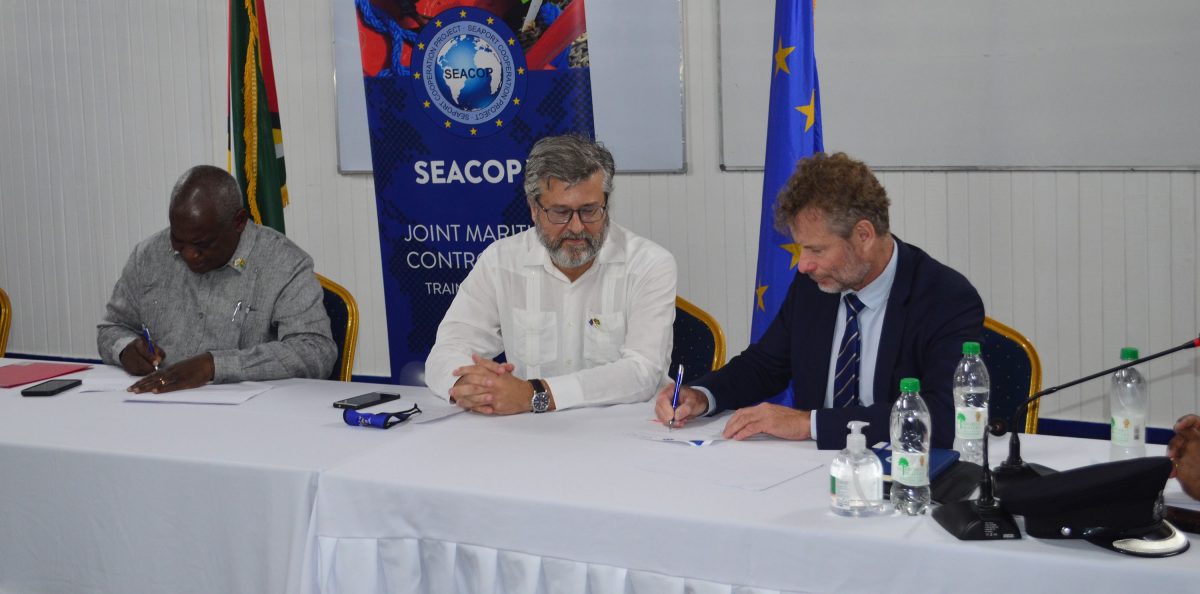In a bid to strengthen the fight against transnational crimes in Guyana and across the region, the Ministry of Home Affairs on Friday signed a Memorandum of Understanding (MoU) with the European Union-funded Seaport Cooperation Project-Phase V (SEACOP V).
Minister of Home Affairs Robeson Benn inked the agreement with SEACOP V Project Director Dominique Bucas and EU Ambassador Fernando Ponz Cantó during a simple ceremony which was held at the Guyana Coast Guard Training facility at Kingston.
During brief remarks, Benn said that the Government of Guyana and the Ministry are “resolute” in the fight against global threats, including organised crime, as well as in ensuring maritime security.
He said with the country’s recent development in the oil and gas sector, there is likely to be a rise in these threats. “We must therefore be better equipped and prepared to combat and mitigate these threats and the consequences of these threats,” Benn said.
He added that trafficking of illicit goods and drugs is an international phenomena with “devastating” impacts on the social and economic development as well public health.
“Trafficking is orchestrated by transnational criminal groups operating across several continents and [which] are often involved in other criminal activities. These activities include kidnapping, money laundering along with the issues of drugs and firearms trafficking,” he noted.
In closing, Benn emphasised the importance of pooling resources together to combat the illicit acitivities.
SEACOP V is the fifth phase of the Seaport Cooperation Project, which was launched in 2010. T
The previous phrases of the project focused mostly on drug trafficking while the fifth phase is aimed at addressing transnational organized crime and related illicit trade comprehensively.
According to the European Union Ambassador, Guyana has a fundamental role to play in the fight. “This is a very good day for the fight against transnational illicit flow…..I have high hopes that this is going to be a success,” he said.
“Today’s Memorandum of Understanding is yet another illustration of things that we can do together….I know there is much more to do,” he added.
Meanwhile, Head of the Customs Anti-Narcotics Unit (CANU) James Singh said that the aim of the multi-agency approach is to strengthen trust and confidence between the public and the agencies involved.
“….The aim here is to impart not just knowledge but also help us to do better if we train together, if we share intelligence, if we do joint operations. It builds a level of trust. At the end of the day, we are working against transnational crime” Singh said.
He pointed out that many of the successes recorded out of Guyana is as a result of information sharing, while noting that Guyana’s plight is that the country is situated between the “producer” and the “consumer”.
“So Guyana, by virtue its geographic location, is a transshipment one and no single agency can determine ‘well, we don’t do this and we don’t do that.’ It takes a joint approach,” Singh said.






